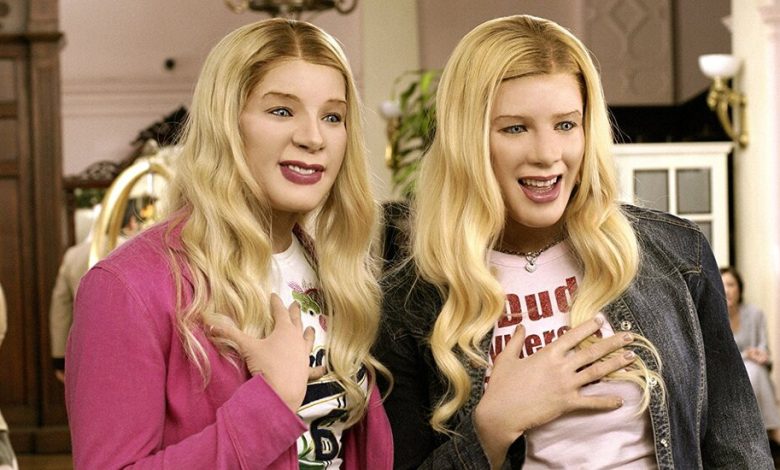‘White Chicks’ at 20: Comedy Beyond the Pale

When the oversexed basketball player Latrell Spencer (Terry Crews) turns to his date to sing Vanessa Carlton’s “A Thousand Miles,” he does so to prove his total love of all things white. Spencer is the stereotypical embodiment of the lascivious muscular Black man intent on procuring a white woman to prove his own masculinity. “Once you go Black, you’re gonna need a wheelchair,” he says. And yet, despite the broadness of his carnal desires, his performativity is the comedic soul to the director Keenen Ivory Wayans’s astute racial passing satire “White Chicks.”
A gender-bending film (streaming on Hulu) that wields whiteface to interrogate the appropriation of Black culture into affluent, gendered white spaces, the film, upon initial release, was critically reviled. Roger Ebert named it the seventh worst movie of 2004. “Who was it made for? Who will it play to,” he asked. In the two decades since, however, its spiky critique of white privilege has revealed itself to be far more incisive than its lowbrow humor would indicate.
Best summarized as “Some Like It Hot” meets “The Simple Life,” “White Chicks” follows Kevin Copeland (Shawn Wayans) and Marcus Copeland (Marlon Wayans), two bumbling F.B.I. agents nearing termination. Tasked with protecting two wealthy white women — the shallow Brittany Wilson (Maitland Ward) and her sister, the idiotic Tiffany (Anne Dudek) — from kidnappers, the detectives find trouble when a car crash injures the two women, leaving them unwilling to attend a fashion event in the Hamptons. To save their jobs, Kevin and Marcus pose as the sisters by dressing in skirts and heels, wigs, makeup, prosthetics. And the “white” voices they adopt become their tools.
While blackface has minstrel roots, whiteface arises from a different impulse. Often employed in comedies, the practice enables Black people to pass as white, putting them in proximity to the believed benefits and privileges the skin tone provides. In works like the Whoopi Goldberg corporate satire film “The Associate” or the Eddie Murphy “White Like Me” sketch on “Saturday Night Live,” the practice not only gives the infiltrator a financial and social advantage, it allows the racial passer to upset the perceived stability of racial identity.
In “White Chicks,” the identity switch works in similar fashion with the added twist of a gender swap. When Kevin and Marcus become Brittany and Tiffany, they’re given the privileges of white femininity. In an early scene, set in the Hamptons, a concierge asks for a credit card to hold the room. Kevin and Marcus, stuck with their own debit cards, threaten to throw a “bitch fit” if the hotel doesn’t allow them to check-in. After a tantrum, they’re allowed in their rooms.